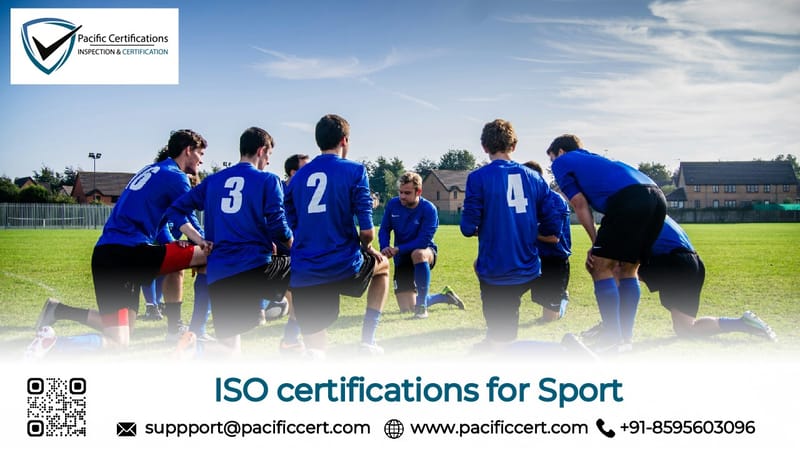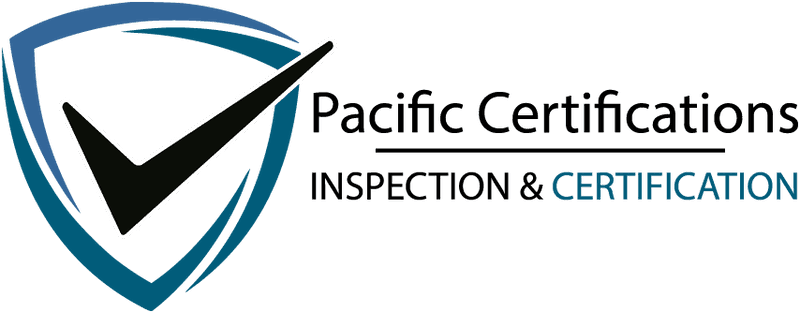ISO Certifications for Sport Event Organizing Industry, Requirements and Benefits

Introduction
Sport event organizing operates in a highly visible, time-critical, and risk-intensive environment where participant safety, crowd management, service quality, data protection, sponsor obligations, and operational continuity directly impact public trust and commercial success. Sport event organizers manage a wide range of activities including event planning, venue coordination, ticketing, athlete management, broadcasting support, security coordination, logistics, volunteer management, and stakeholder communications across local, national, and international events.
As sporting events continue to grow in scale and complexity, expectations on organizers have shifted from basic event execution to structured governance, documented safety systems, measurable service performance, and regulatory compliance. Authorities, sponsors, federations, broadcasters, and attendees increasingly require assurance that events are managed responsibly, securely, and sustainably.
ISO certifications provide sport event organizing organizations with internationally recognized management system frameworks to demonstrate controlled planning, safety assurance, service reliability, information security, and risk-based decision-making across the entire event lifecycle.
“Behind every successful sporting event is a system built on discipline, safety, and trust — ISO makes that system visible.”— Pacific Certifications
Quick Summary
ISO certifications provide sport event organizing companies with globally accepted frameworks to manage service quality through ISO 9001, occupational health and safety through ISO 45001, environmental responsibility through ISO 14001, event continuity through ISO 22301, information security through ISO/IEC 27001, risk governance through ISO 31000, and sustainable event practices through ISO 20121. These certifications help event organizers deliver safe, reliable, and compliant sporting events while strengthening confidence among authorities, sponsors, and participants.
For more information on how we can assist your sport event organizing organization with ISO certifications, please contact us at [email protected].
Applicable ISO Standards for Sport industry
Below are the most relevant ISO standards applicable to sport event organizers, tournament managers, federations, and event management companies.
ISO 9001:2015 - Quality Management Systems
ISO 9001 focuses on quality management systems (QMS) and helps organizations ensure that they meet customer and regulatory requirements consistently. For sports organizations, ISO 9001:2015 can be applied to enhance service quality, streamline processes, and improve overall performance.
ISO 14001:2015 - Environmental Management Systems
ISO 14001:2015 provides a framework for managing environmental responsibilities in a systematic manner. By adhering to this standard, sports organizations can minimize their environmental footprint, comply with environmental regulations, and promote sustainability.
ISO 45001:2018 - Occupational Health and Safety Management Systems
ISO 45001:2018 helps organizations implement a robust occupational health and safety management system (OHSMS) to protect athletes, staff, and spectators. This standard focuses on reducing workplace risks, improving safety performance, and creating a safe environment for all stakeholders.
ISO 20121:2012 - Event Sustainability Management Systems
ISO 20121:2012 is specifically designed for the events industry, including sports events. This standard provides a framework for managing the economic, environmental, and social impacts of events. Sports organizations that host events can benefit from ISO 20121 by ensuring that their events are sustainable, minimize negative impacts, and contribute positively to society.
ISO 37001:2016 - Anti-Bribery Management Systems
ISO 37001:2016 helps sports organizations implement anti-bribery management systems to prevent, detect, and respond to bribery risks. This standard is crucial for maintaining the integrity of sports competitions and ensuring that all participants adhere to ethical practices.
ISO 26000:2010 - Social Responsibility
Sports organizations have a responsibility to their communities and stakeholders. ISO 26000:2010 provides guidance on social responsibility, helping organizations operate in a socially responsible manner.
ISO 31000:2018 - Risk Management
ISO 31000:2018 provides a framework for identifying, assessing, and managing risks in a systematic way. This standard helps sports organizations build resilience and prepare for uncertainties.
Click here to find out more applicable standards to your industry
For expert assistance with ISO certification in the sports industry, email us at [email protected] or phone +91-8595603096.
What are the requirements of ISO certifications for Sport Industry?
ISO certifications provide frameworks for organizations to ensure quality, safety, sustainability, ethical practices, and effective risk management. Below are the key requirements and benefits for each of these standards.
General requirements:
Define and document event management policies and processes aligned with the chosen standards.
Establish systems for safety, risk, sustainability, and quality monitoring.
Conduct internal audits and management reviews for performance tracking.
Maintain evidence of staff training, emergency drills, and stakeholder communication.
Implement data security and privacy controls for digital ticketing and participant information.
Undergo independent third-party audits by an accredited certification body.
Specific requirements: ISO 9001:2015 - Quality Management Systems
Requirements:
Top management must demonstrate leadership and commitment to the quality management system (QMS).
Organizations must understand customer needs and strive to meet or exceed customer expectations.
The standard requires organizations to define processes, their interactions, and responsibilities to achieve the desired outcomes.
Organizations must identify and manage risks and opportunities that could affect product/service quality.
Maintaining comprehensive documentation to support the QMS, including policies, procedures, and records, is essential.
Organizations are required to continually improve their QMS and overall performance.
ISO 14001:2015 - Environmental Management Systems
Environmental Policy: Organizations must establish an environmental policy that reflects their commitment to environmental management.
Identifying and assessing the environmental aspects of activities, products, and services is required.
Organizations must understand and comply with applicable environmental laws and regulations.
Setting environmental objectives and planning actions to achieve them is essential.
Implementing procedures to control environmental aspects and minimize impacts.
Organizations must be prepared to respond to environmental emergencies.
ISO 45001:2018 - Occupational Health and Safety Management Systems
Hazard Identification and Risk Assessment: Organizations must identify occupational hazards and assess risks to prevent injuries and illnesses.
Legal and Other Requirements: Compliance with applicable health and safety laws and regulations is mandatory.
Objectives and Programs: Setting health and safety objectives and implementing programs to achieve them.
Operational Controls: Establishing controls to manage health and safety risks effectively.
Worker Participation: Engaging workers in the health and safety management system is essential for its success.
Emergency Preparedness: Organizations must be prepared to respond to health and safety emergencies.
ISO 20121:2012 - Event Sustainability Management Systems
Sustainability Policy: Organizations must establish a policy that reflects their commitment to sustainable event management.
Sustainability Objectives: Setting objectives related to economic, environmental, and social aspects of events.
Stakeholder Engagement: Engaging with stakeholders to understand their needs and expectations regarding sustainability.
Sustainable Procurement: Ensuring that suppliers and products meet sustainability criteria.
Performance Monitoring: Monitoring and measuring the sustainability performance of events.
Continuous Improvement: Regularly reviewing and improving the sustainability management system.
Tip: Begin by focusing on ISO 20121 as your foundation for sustainable event management. Integrate ISO 9001 and 45001 next for operational consistency and safety.
For further information on how we can assist your sport event organizing business with ISO certifications, contact [email protected].
What are the benefits of ISO certifications for Sport Industry?
ISO certifications deliver structured and measurable sustainability outcomes. They improve public trust, event safety, and the operational resilience of every stage of the event lifecycle. Below is how getting certified helps:
Demonstrates international compliance and builds credibility among sponsors, federations, and attendees.
Enables proactive control over operational, financial, and reputational risks.
Ensures safe working environments for staff, volunteers, and athletes.
Promotes eco-friendly practices such as waste reduction and energy efficiency.
Streamlines vendor, logistics, and resource management processes.
Strengthens relationships with partners, investors, and regulatory authorities.
Ensures preparedness against disruptions through robust contingency planning.
Protects sensitive information including participant data and digital ticketing systems.
The sports events industry is expected to expand at a 7.2% CAGR, driven by sustainability and digitalization. According to EY’s Sports Industry Report, nearly 80% of global sports organizers have started aligning operations with formal sustainability or safety standards. Events such as the Paris Olympics and UEFA EURO incorporated ISO frameworks to ensure transparency and accountability.
Moreover, with increased cybersecurity threats and remote event management platforms, ISO/IEC 27001 has become a growing necessity for protecting event-related digital infrastructure. By 2030, ISO-certified organizers are projected to experience 30% fewer compliance incidents and 25% higher sponsor retention compared to uncertified entities.
How Pacific Certifications Can Help
Pacific Certifications, accredited by ABIS, acts as an independent certification body for sport event organizing organizations by conducting impartial audits against applicable ISO standards. Our role is to objectively assess whether documented management systems and event operations conform to international ISO requirements, based strictly on verifiable evidence.
We support sport event organizers through:
Independent certification audits conducted in accordance with ISO/IEC 17021
Objective assessment of event planning, safety systems, and risk controls
Clear audit reporting reflecting conformity status and certification decisions
Issuance of internationally recognized ISO certificates upon successful compliance
Surveillance and recertification audits to maintain certification validity
If you need support with ISO certification for your sport event organizing activities, contact [email protected]or +91-8595603096.
Contact Us
If you need support with ISO certification in Maldives, contact us at [email protected].
Author: Seema
Read More at: Blogs by Pacific Certifications

